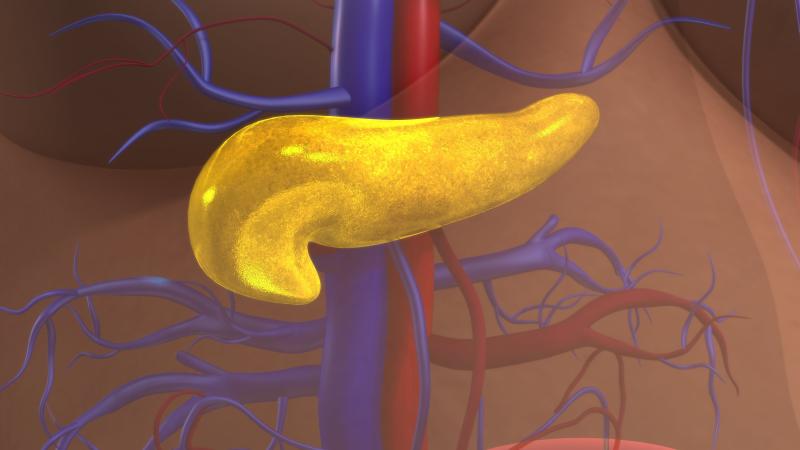
Systemic treatment tailored by molecular gene expression analysis has failed to improve outcomes of patients with carcinoma of unknown primary origin (CUP), according to the results of the GEFCAPI 04 trial presented at the 2019 Congress of the European Society for Medical Oncology (ESMO 2019).
“The GEFCAPI 04 results are disappointing, but many of the patients had pancreatic, biliary and other kinds of cancer which are extremely difficult to treat and for which there are no targeted treatments,” lead author Prof Karim Fizazi from the Institute Gustave Roussy, University of Paris Sud in France, said in a statement.
“In a small number of patients who had suspected primary cancers unlikely to respond to empiric chemotherapy, molecular testing allowed use of a targeted agent or better tailored chemotherapy or immunotherapy, [b]ut there were probably not enough to make a difference to the overall results of the study,” he added.
The study included patients who had pathologically confirmed metastatic CUPs and were treatment-naïve. Those belonging to predefined favourable subsets were excluded.
Patients were randomly assigned to either arm A (cisplatin 100 mg/m² d1 + gemcitabine 1,250 mg/m², day 1 and 8, q3w) or arm B (gene expression test followed by à la carte treatment according to the suspected primary malignancy). The test involved the Tissue of Origin (Pathwork, n=21) or CancerTYPE ID (Biotheranostic, n=122).
Progression-free survival (PFS; hazard ratio [HR], 0.625; power, 80 percent; 5-percent bilateral test) was the primary endpoint. Secondary endpoints included overall survival (OS) and PFS in patients with predefined cancer who were likely insensitive to cisplatin-gemcitabine.
A total of 243 patients from four European Union countries were randomized: 120 to arm A and 123 to arm B. The most commonly reported cancers by tests were as follows: pancreatico-biliary cancer (19 percent), squamous cell carcinoma (11 percent), kidney cancer (8 percent) and lung cancer (8 percent). Molecular test results were used to tailor treatment in 91 (74 percent) patients in arm B.
PFS by central review showed no significant between-group difference (arm A vs arm B: median PFS, 5.3 vs 4.6 m; HR, 0.95, 95 percent CI, 0.72–1.25; p=0.7). PFS by local review was also similar between the two arms (median PFS, 5.8 vs 6.4 m; HR, 0.80, 0.60–1.06; p=0.12). [Fizazi K, et al, ESMO 2019]
OS was also comparable in the overall population (median OS, 10 vs 10.7 m; HR, 0.92, 0.69–1.23) and in 60 patients with suspected cancers that are likely insensitive to empiric chemotherapy.
“We need better tests, especially for the worst types of cancer, that not only tell us the identity of each patient’s primary tumour but also the detailed biology of their cancer and the potential targets for treatment,” Fizazi said. “In addition, we need better weapons with which to attack those targets.”
In a commentary to the study presented, Dr Harpreet Wasan from the Hammersmith Hospital, Imperial College London in UK, stressed the need to understand the fundamental biology of CUPs and not just the origin of the primary tumour in order to choose the most relevant targeted therapy.
“Classifying CUP on the basis of a test that is pointing to its site of origin is not enough to improve patient outcomes,” Wasan said. “These are nasty tumours that behave much more aggressively and spread much earlier than a typical tumour that is diagnosed with a clear primary site.”
CUPs are heterogeneous tumours sharing metastatic characteristics with no identifiable origin. Patient outcome in CUP remains poor despite empiric chemotherapy that has activity against a wide variety of neoplasms (eg, cisplatin-gemcitabine combination). [J Clin Oncol 2002;20:4679-4683]